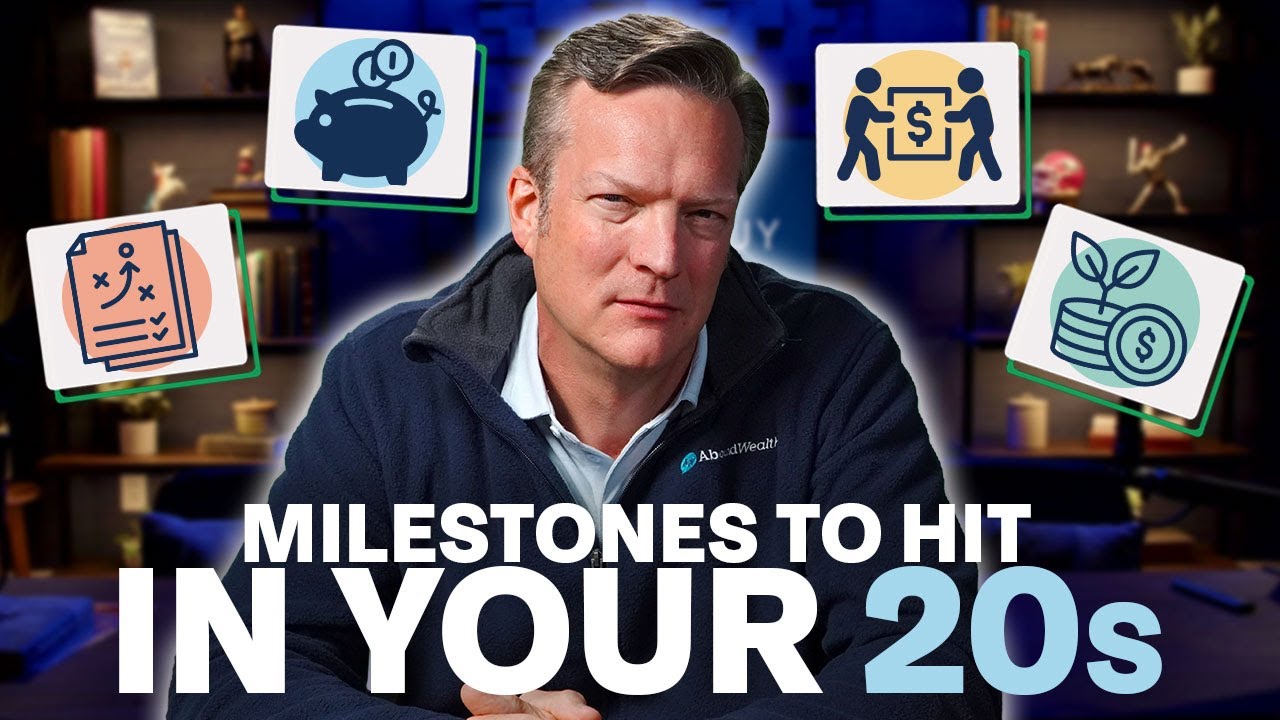We want to kind of start with the 20s because the 20s gets me so excited. Pretty much every little bit you give, it only takes a little bit of today to get a really incredible Great Big Beautiful tomorrow. That's what I love about it. You might not feel like you have a lot of money laying around, but that's okay because time is going to do the heavy lifting for you.
But here's what we found: if you wanted to, and we have a great resource for you if you'll go to
moneyguy.com/resources, we have a
wealth multiplier for young savers that will show you what you need to save per month to reach 1 million and 2 million dollars. I think that's important.
Look, we're about to show you on the plush side of life what you need to be saving to keep up with inflation. But I still, for anybody who's starting out, you can get to two million dollars of assets. For a 20-year-old, you only need to save $191 a month; for a 25-year-old, $368 a month; for a 29-year-old, $600 a month. Those are still very doable goals, and two million dollars is a lot of money.
But we did want to go just, in a Money Guy fashion, the extra step and say, "Yes, but with inflation, what do you need to do to keep that purchasing power?" That's exactly right, Brian, because a 20-year-old out there listening is saying, "Okay, 2.2 million dollars today provides a rich, wealthy, a very nice lifestyle. But I understand the time; in the future, I might not. Two million dollars might not be enough for me to do that." So we wanted to figure out how much would you need to save so that when you got to retirement, when you got to age 65, the portfolio you built would provide the same purchasing power as 2.2 million dollars today.
And this is what we found: for a 20-year-old to save to age 65 to have the same purchasing power as 2.2 million dollars today, you need to be saving about $800 a month; for a 25-year-old, that'd be about $1,300 a month; and for a 29-year-old, it's a little over $1,900 a month. Now, here are the assumptions we used: we assumed a 20-year-old can earn, on average, 10 percent per year, and then every year, we decrease it by 0.1. So at 21, it's 9.9, and 9.8, 9.7, and then we just assumed a three percent annual inflation rate to bring the dollars back to present value.
So if your goal, if you're 20 years old, is $2.2 million, and you want that when you get to retirement, when you get to 65, what do I need to be saving to be able to maintain that purchasing power? These are your numbers. Yeah, and, like I said as a refresher, 183 percent of the typical median household. So this is pretty good; if you're talking about living in retirement, this is pretty good, definitely Financial Mutant territory.
And just to ground the number, I like people because we're math nerds, we love it too. You know, for a 25-year-old, if you want to know what the equivalent of 2.2 million dollars will be at retirement, it's actually a little over seven million dollars. These are not small sums of money. But I think it's important to be clear and transparent. This is the way it works if you want to keep up with inflation.
So the question you probably asked, I mean, I'm 20, and Brian, I think you even said this too, this is hard in your 20s. It's hard to save at these levels, and we recognize that. So the question you ask, "Okay, well, how do I do it? What are some things I can think about? What are some ways I can attack this?"
Well, the very first one, especially if you're early on in your wealth-building journey, is don't miss the easy opportunities. Don't miss the things that are the "duh" moments that you should be taking advantage of. One of the ones that we always like to talk about, Brian, that we get so excited about is getting the employer match. Yeah, because this is one of those things where small decisions today can have huge, big results down the road. And that free money—it's really a doubling of your money—whether your employer offers you 50 cents on the dollar for your contributions, that's at least a guaranteed 50 percent rate of return. But a lot of employers, on some portion of your compensation, it's going to be dollar for dollar, and that's a 100 percent guaranteed rate of return. Don't miss out on that incredible opportunity because unfortunately, about 34 percent of the public is not maximizing that free money opportunity. Thirty-four percent of the public is squandering the opportunity. So if you are someone in that situation right now, and you have an employer match at work and you're not fully capitalizing the whole thing, I would try to do every single thing in your power to be able to do that so that you can capitalize on that.
The other thing you have to do—and maybe this is the way that you find your ability to go get that free money—is you have to look for the easy ways to find money. You have to figure out, "Okay, are there things going on or are there things in my life that I could adjust in terms of the accounts that I hold or the money that I spend that might create some dollars?" When we actually have a show out called
"Three Easy Ways to Find Money" coming out on July 14th, you should be able to go listen to it, say, "Okay, I can find maybe I'm only able to save $100 or $230, but man, if I can find a few extra dollars and I can start saving that in at 20, 25, 29, those dollars will add up substantially over my working career."
Before we close out the 20s, I do want to talk to my aspirational 20-somethings because you find this content and you're excited about starting to build for tomorrow. Don't let these numbers overwhelm you in the beginning because I've got to tell you, I think, for in your 20s, if you can just do anything—I don't care if it's 50 dollars a month, if it's a hundred dollars a month—just let your money start working for you, start building that army of dollars because I think you'll find you just start the process. But then you'll start hitting your stride in your career, you'll get pay raises, you'll have other things that come. So just be aspirational. Try to get to the 20, 25 by the close of the decade so that you can go ahead and have your financial journey set, and you can actually start building upon itself.













